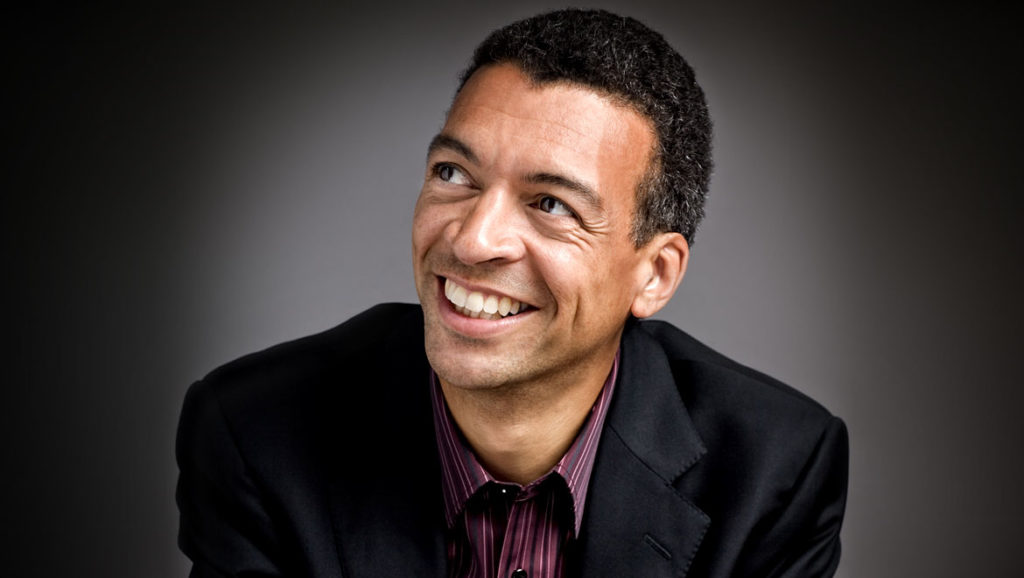
IF you are a lover of Schubert lieder, you may bridle at hearing them sung in English. If you are an even more dyed-in-the-wool purist, you will want to hear his great song-cycle Winterreise sung in the original keys, in other words by a tenor.
So, if you experienced the cycle in English, sung by a baritone – two removes from the original – you might think it beyond the pale. In which case, you probably hadn’t heard these two musicians perform it.
The Jeremy Sams translation, written at the invitation of accompanist Christopher Glynn (of Ryedale Festival), has no airs and graces. It reflects the relatively simple language of Wilhelm Müller’s original, which is not by any yardstick a masterpiece of German literature.
Instead it sticks to a basic story-line about a jilted lover and paints in simple terms the emotions he feels as he travels through a wintry landscape that reflects his inner world. This man is a loner, an outsider – and angry at the way the world has mistreated him.
Such a reading of Sams/Müller inspired Williams’s response here, and Middleton was hand in glove with his vision. After rueful reflection in the final, major-key stanza of Gute Nacht (Goodnight), we were straight into bitter resentment with Die Wetterfahne (The Weather-vane), Middleton pecking at the keys as Williams hurled verbal darts at the traveller’s ex-lover. In Gefrorne Tränen (Frozen Tears) I part company with Sams, who translates ‘Eis’ into snow, where ‘ice’ is much more biting. Doubtless rhyme demanded it, but still.
We felt the comfort from the linden tree’s rustling leaves and the traveller’s tears “guzzled by the thirsty snow” – a telling metaphor – before Williams suggested that the journey was taking a toll on the lover’s sanity in Rückblick (Turning Back); here his anger had been presaged by the piano’s violent prelude.
Then came a masterpiece of characterisation in Frühlingstraum (Dreaming Of Spring), where the duo conjured three distinct moods, its light-hearted start jolted into reality at cock-crow and thence into bitterness that happiness can never be recaptured.
There were sadly unfulfilled hopes that the post would bring a comforting message, although, again, the English ‘heart’ did not carry quite the bite that the German ‘Herz’ delivers with its final consonant. Flowing triplets well captured the friendly crow’s flight, but the temporary ease was soon dissipated in the baritone’s hint of mental disintegration in Letzte Hoffnung (Last Hope).
Sams imagines a ‘proper witches’ brew’ from Der Stürmische Morgen (Stormy Morning) – not really in the original text – but Williams obliged with some really vicious tone, complementing it immediately in the major/minor anguish of Täuschung (Delusion) and a beautifully pianissimo ending.
The tempo sagged a little in Das Wirtshaus (The Inn – actually a graveyard), although it was given a really bold postlude. That prepared the way nicely for some real swagger in Mut! (Courage!). Self-doubt re-emerged in a cleverly mood-wavering account of Die Nebensonnen (Phantom Suns). For the final song, Der Leiermann, Williams walked to the end of the piano and faced sideways, treating the pianist as the organ-grinder of the title. It was a telling move.
So much of the cycle had these moments that revealed a real depth of engagement on the part of this admirable duo. If Williams was more relaxed and thus more immediate in his colours, Middleton was a touch more deliberate, occasionally trying to inject more into Schubert than the composer really intended to convey. Nevertheless, it was a moving – and memorable – evening.
Review by Martin Dreyer
